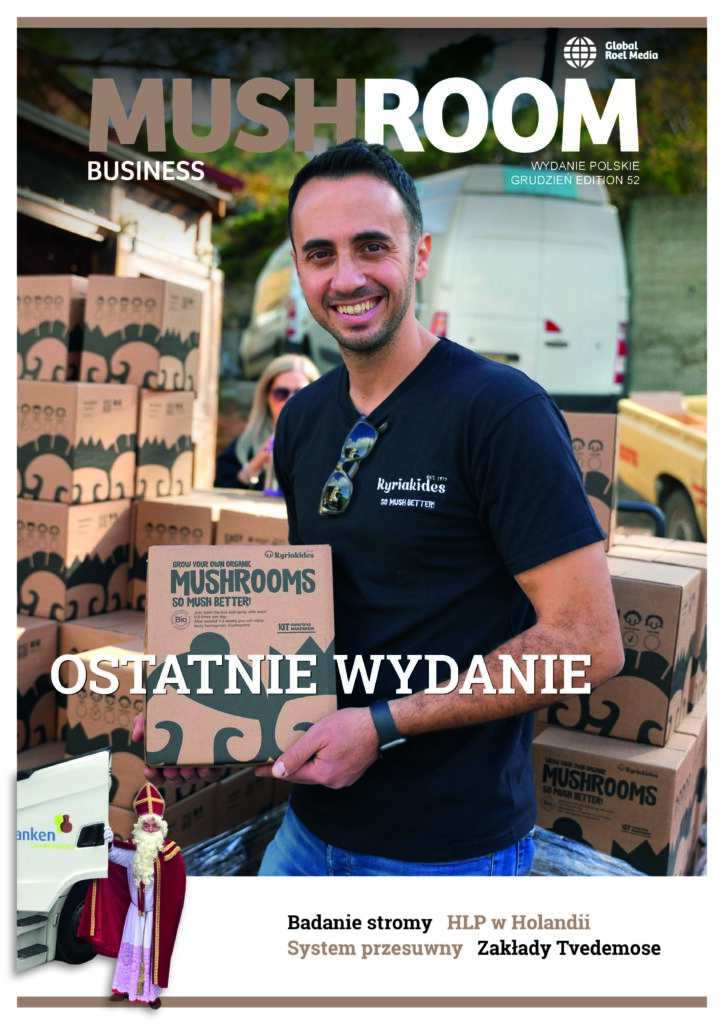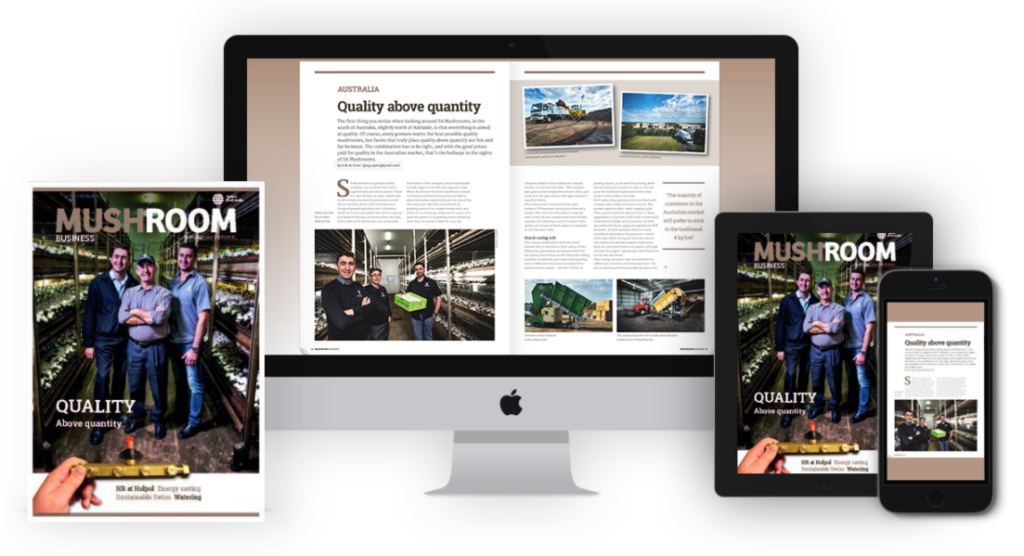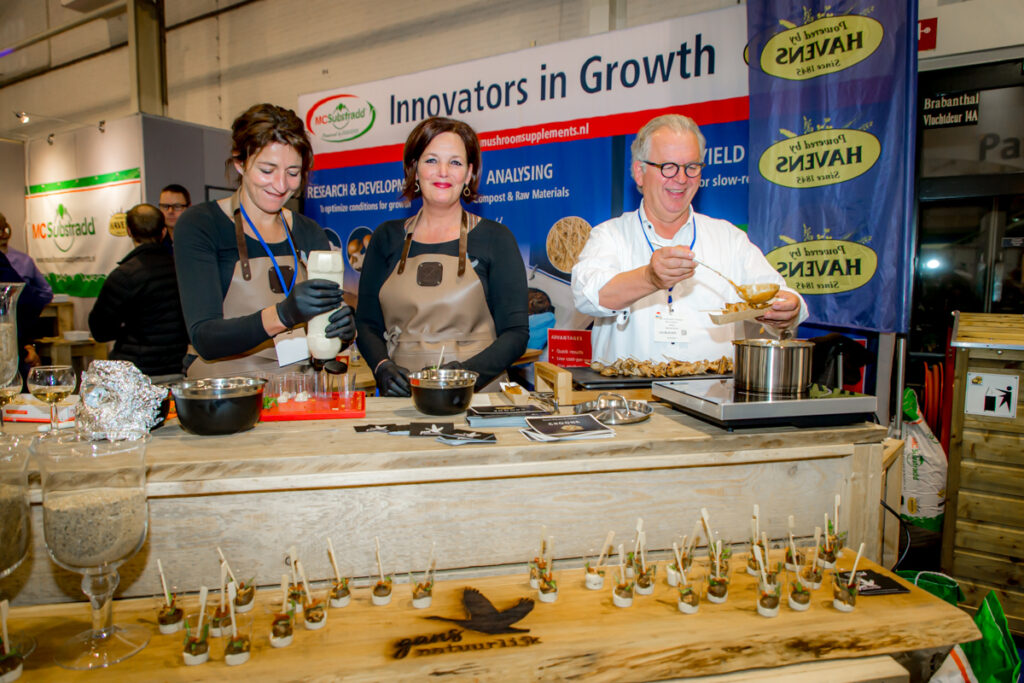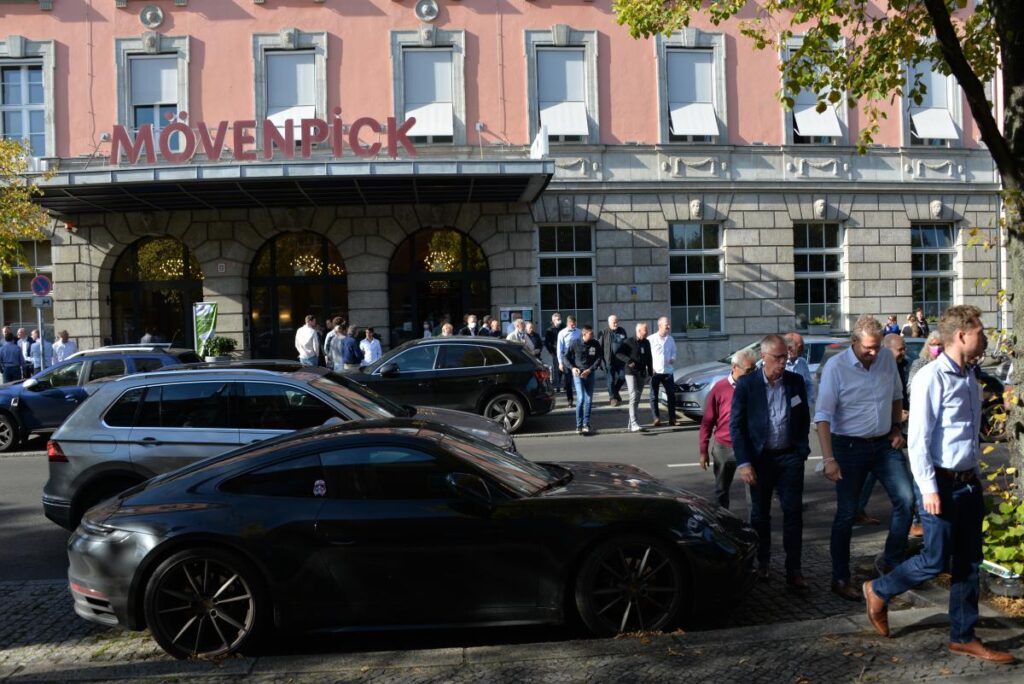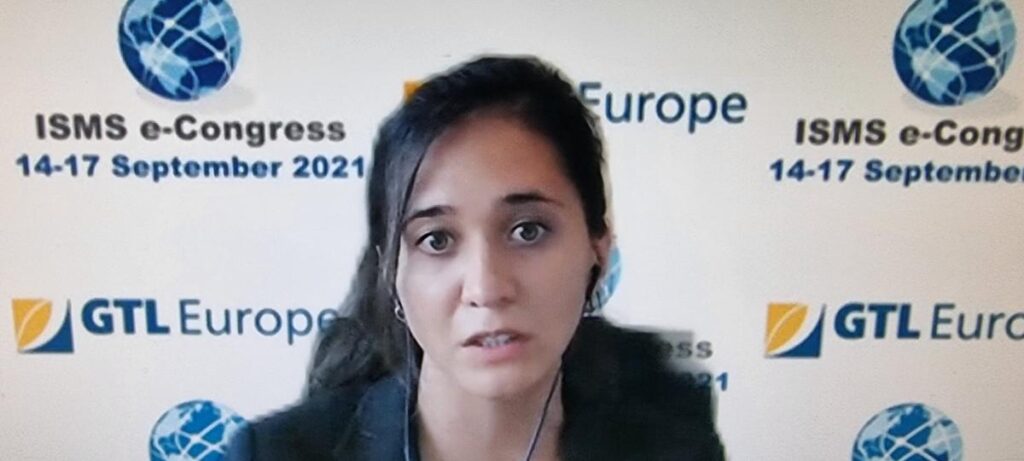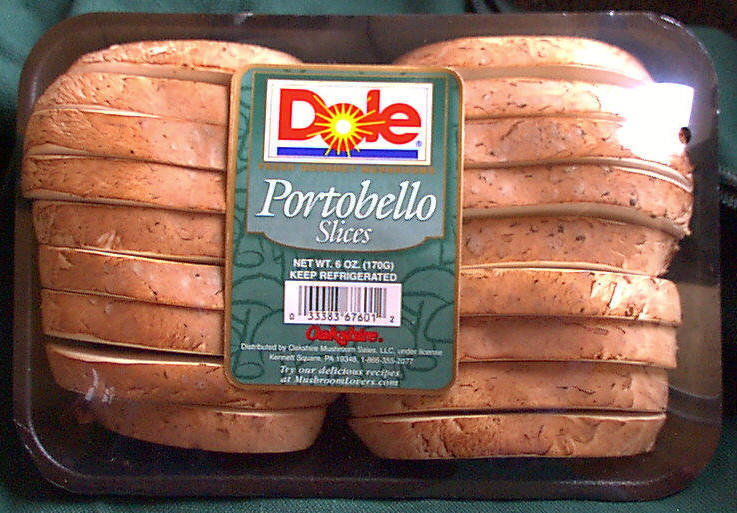
Thursday 24 April 2008 saw the second edition of the – exclusively Dutch – Nationale Paddestoelendag (National Mushroom Day), this time in the new research facilities of PRI in Wageningen. Some 350 growers and other interested parties could use the occasion to discover the latest techniques offered by various suppliers, attend lectures and do some networking.
The day focussed on innovation and co-operation in the sector, with the recurring theme being the sector vision 2020 of the ZLTO group Mushrooms. The ultimate aim of the day was raising awareness among growers of the opportunities for innovation on their own companies.
Innovation tour
After some introductory speeches by representatives of the Dutch agro-sector and the Ministry of Agriculture, the visitors split into two groups. One group proceeded to a hall where four lectures were planned, while the other group took an innovation tour.
This was a new concept which offered a number of companies and organisations a platform to display and explain some of the recent innovations in the sector to a broader public. A great idea, which was sometimes rather chaotic because of the huge interest and the short time allocated to each of the presenters.
We started with a leak tester from C point, presented by Jos Amsing. Insects are major vectors in spreading diseases in mushroom growing, and a fly only needs a tiny gap of 2 mm to penetrate a growing room. A leak tester infallibly shows where gaps and cracks in growing rooms are located.
Jan Gielen of C point explained the (new) multi-year energy plan (MJA-E), the results achieved in relation to increasing energy efficiency in cultivation and increasing the share of sustainable energy used. C point, in co-operation with growers and suppliers of climate computers, has already made a lot of progress in this field, including the development of energy efficient climate modules. Gielen will lecture on this subject at the ISMS Congress in Cape Town.
Fancom was one of the above mentioned suppliers of climate computers. Fancom’s John Willemsen demonstrated the many advantages of integrating the climate module in the computers the company supplies to growers. For example, the 765.e energy saving mushroom computer.
Panbo systems presented the new Panbo 600 Grow Computer. A module still under development for this computer is the weighing system ‘Weigh what you do’. By placing load cells underneath the shelving, the exact weight of the beds can be determined and registered. This method can help determine weight changes caused by e.g spraying and evaporation. The extent of weight reduction indicates the extent of evaporation. This has a number of interesting possibilities/advantages.
Van Hezik Total Installation Service presented the popular mobile cool unit during the innovation tour. This cool unit has been revised and now uses even less energy (1/3 less power and 1/3 less water) than before.
At the Scelta stand, the visitors really enjoyed the delicious, crispy deep fried snacks. For more details about Scelta’s range of activities see Mushroom Business nr. 28.
Finally Johan Baars explained the plans and studies being conducted by PRI Mushrooms in one of the brand new small scale growing rooms that have been constructed in Wageningen. According to Baars these rooms are supremely suited to conduct research into cultivation techniques and diseases. Research is currently on going into the nutrient need of developing mushrooms. The researcher also gave a sneak preview of the studies into a compost free cultivation, which Anton Sonnenberg returned to in his lecture.
Champ2Champ
In his lecture Goos Cardol from ZLTO highlighted the initiatives that have been taken based on the report ‘Creating chances through change’. ZLTO has distilled a programme of action from the report, formulating three objectives; more effective marketing, innovative quality processing and chain control. According to Cardol there is clearly no shortage of innovative initiatives among entrepreneurs in the sector. ZLTO would like to respond via the project ‘Champ2Champ’ whereby growers are firmly in the driving seat. The growers take the initiative for innovations and ZLTO helps facilitate the required conditions. For each 100,000 euros invested the grower receives 50,000 euros worth of ‘champmiles’, a kind of voucher that can be invested in more research and/or development for various purposes. LNV funds the activities and disseminates the knowledge.
Convenience and consumer
Kees van Beek, branch manager horticulture at the ING bank spoke about the impact of convenience on the food chain. He said that sales of convenience items are rising annually by 3% and in comparison with the USA further strong growth is also highly probable. According to ING, Banken Champignons is a leading exponent of a chain party that understands perfectly well how the play of shifting market power plus the trends in convenience works.
Bas Toonen is responsible for marketing and product development at Banken. He explained how Banken converts convenience in mushrooms into practice. “We get specific requests from our customers to supply market oriented products. “We devote a lot of time to this, and conduct high levels of research. The customer is always the central focus, and ever-higher quality demands are also placed, particularly on the basic product.” Market leader Banken wants to consolidate its leading position in convenience by responding to new trends and by intensive co-operation.
Compost free and substance free
In his lecture ‘Water and nutrients in mushroom growing – Chances and necessity of innovation’ Anton Sonnenberg from PRI Mushrooms explained that compost is the central theme of research into mushroom growing for the coming years. He questioned the current use of compost, due to the production costs, the biological and environmental efficiency, the variation in quality and the champost story. Research is necessary into the possibilities of growing mushrooms without compost, as has been achieved elsewhere. Possible advantages could be; more control, cheaper raw materials, and less transport and waste. However, before we have reached that stage, plenty of research remains to be done according to Sonnenberg.
He was followed by Mark den Ouden, organiser of the Mushroom Day, who closed the programme of lectures with a speech about mushroom growing without using chemical agents. Growers must seek refuge in better hygiene, organic substances such as plant extracts and alternative methods of disinfection.
After the closing ceremony by the mayor of Maasdriel and Ko Hooijmans, chairman of the ZLTO group Mushrooms, the participants drifted towards the buffet and the bar.
The second National Mushroom Day, made possible thanks to the contribution of C point, DLV, PRI, LTO, PT, MJA-e and LNV, was once again a resounding success.
Go to the photo series of this event.
More on this event in next edition of Mushroom Business (nr. 29).

